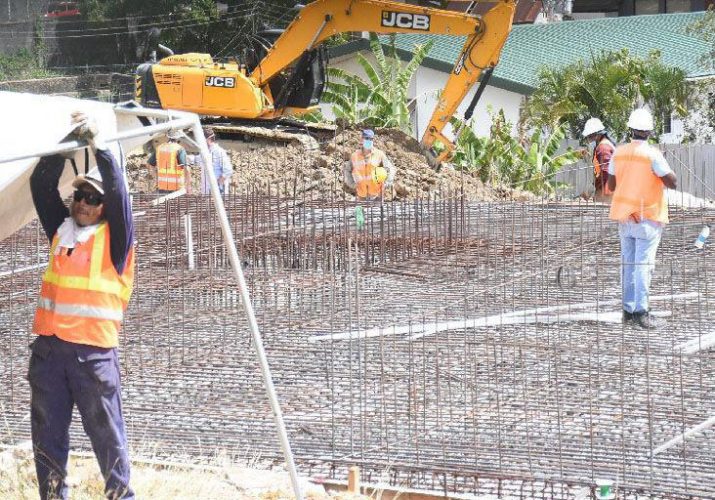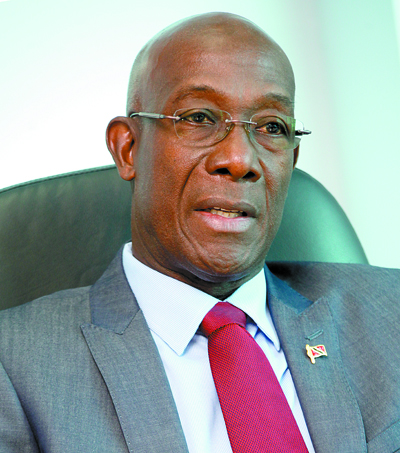If the economic strain being imposed on countries in poor regions like the Caribbean is creating pressures for an accelerated reopening of the business sectors in the respective countries in the wake of the onset of COVID-19, the World Health Organization (WHO) is still urging caution arising out of concerns that a poorly-timed return to ‘business as usual’ could have a disastrous downside.
Last week, as Trinidad and Tobago Prime Minister Dr Keith Rowley was providing details of a phased reopening of some of the sectors of the country’s economy, the WHO was again issuing an unmistakable caution against a rush to ease restrictions, a move which it says could result in an aggressive resurgence of the malady that is, as yet, far from under global control.
“This is not the time to be lax. Instead, we need to ready ourselves for a new way of living for the foreseeable future,” said Dr Takeshi Kasai, the WHO Regional Director for the Western Pacific – a remark that appeared to come in response to indications that the hugely business conscious countries of that region were ‘chomping at the bit’ to get their economies going again.

Earlier in May Rowley had announced that Trinidad and Tobago, which boasts the largest economy in the region, would effect a phased reopening of the country’s economy following the lockdown precipitated by the onset of the coronavirus. A week ago he went further, providing the ‘all clear’ for the country’s key manufacturing and construction sectors to return to work following a complete nine-week lockdown.
While the return to work decision by the Trinidad and Tobago government appears to have been sanctioned by the country’s medical authorities and has won the backing of the business sector, including, critically, its manufacturing sector, the WHO, simultaneously, was cautioning against rushing to ease coronavirus restrictions, an approach which it says will likely lead to a resurgence of the illness. That warning appeared to come as several governments seemed poised to start rolling out plans to get their economies up and running again.
Significantly, the WHO Western Pacific official declared that governments need to remain vigilant to check the spread of the virus and that the lifting of lockdowns and other social distancing measures should be done gradually to strike the right balance between keeping people healthy and allowing economies to function.
Here in the Caribbean the question arises as to whether Trinidad and Tobago’s decision does not amount to tempting fate. On the other hand it can be argued that in a region comprising mostly small-island states with less than robust economies the keenness of some countries to get back to work could begin to ‘infect’ other countries. Closure of major sectors of some countries’ economies in the Caribbean have resulted in significant job losses and the sense of urgency which Trinidad and Tobago has placed on returning to work would appear to reflect that reality.
Within the Caribbean Community (CARICOM) as a whole, however, the issue of removing the restrictions placed on business operations is now being balanced against the extent to which the respective populations have been prepared to adhere to the restrictions put in place earlier in response to the onset of the virus.
Guyana may well provide one of the better case studies here. Back in late March, in the wake of the social distancing strictures put in place here, WHO/PAHO Resident Representative in Guyana Dr William Adu-Krow felt compelled to issue a blunt recommendation that government consider a complete ‘lockdown,’ a pronouncement that derived from his belief that, on the whole, Guyanese were not taking the social distancing refrain seriously. “I think we should seriously consider a lockdown… if we don’t do complete lockdown at some point, I think we will be in deep trouble,” Dr Adu-Krow was quoted as saying.
Not only has there been no lockdown so far (despite thinly veiled official hints about the likely eventuality), but concerns with regard to adhering to social distancing constraints in Guyana have not eased. In pockets of the country including areas in the heart of the capital, there continues to be blatant evidence of a ‘life as usual’ posture where groups of persons gather casually, ‘hanging out’ at their favoured corners in the city.
In Georgetown, while significant numbers of business places remain closed other have continued to trade under a less than strict social distancing regime that is, in some instances, limited to a hand-washing routine and in other instances the wearing of a face mask before entering business premises.
Interestingly, there has been no particularly robust pronouncement from the private sector on the issue of the adherence by the business community to the strictures associated with social distancing though the proprietors of some business houses have shown evidence of serious efforts to live within the rules. Where enforcement is concerned and in fairness to the Guyana Police Force, it already has its hands filled with substantive policing duties though the likelihood that the policing of some strictures associated with doing business in the current environment may have become compromised to a greater or lesser degree, cannot be ruled out.
It is hardly surprising, therefore, that while some of the smaller, more hard-pressed countries in the region are already beginning to look in the direction of returning to a status quo that at least resembles business normalcy, neither government nor the private sector has been particularly strident on the issue of returning to a ‘business as usual’ status quo. Here in Guyana and by the admission of some officials in both the public and private sectors, what appears to be our inclination to tempt fate may amount to a serious miscalculation.





